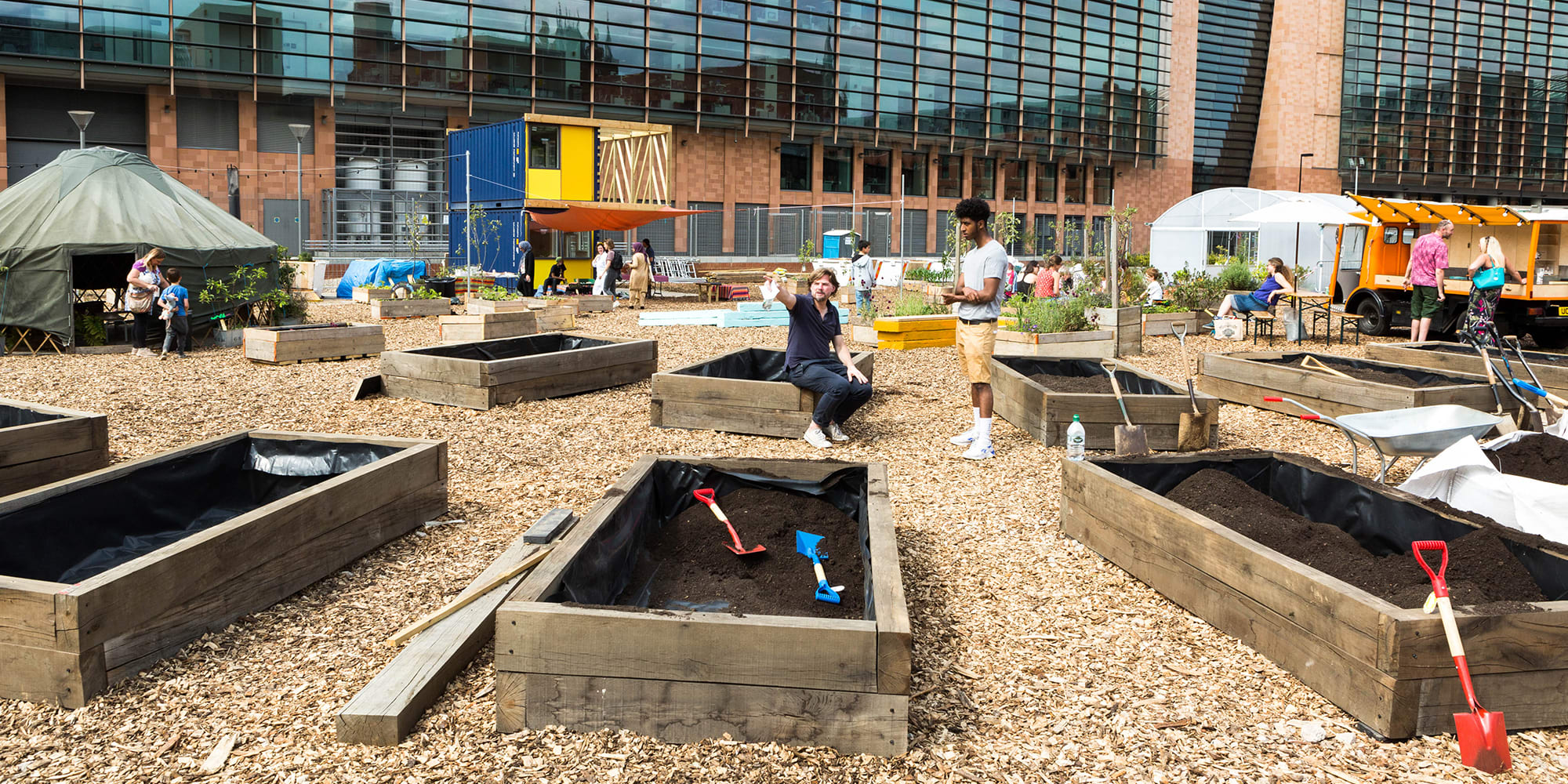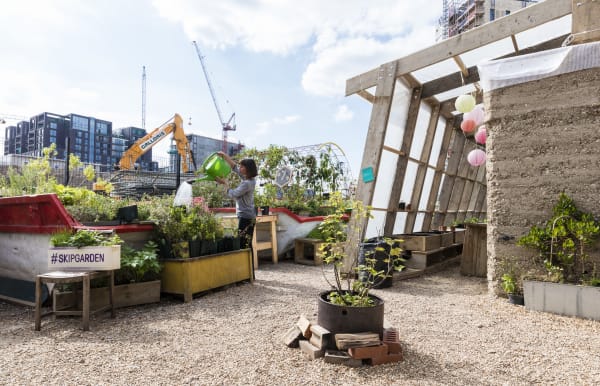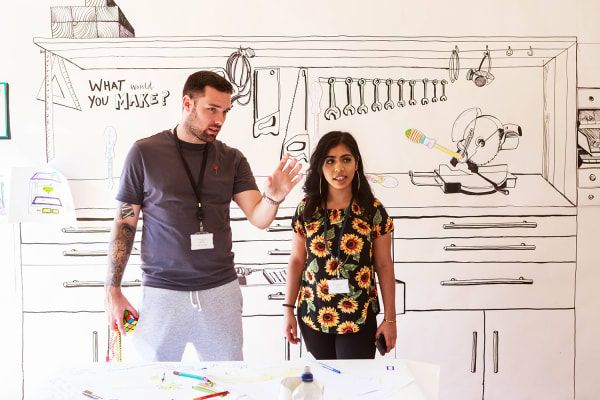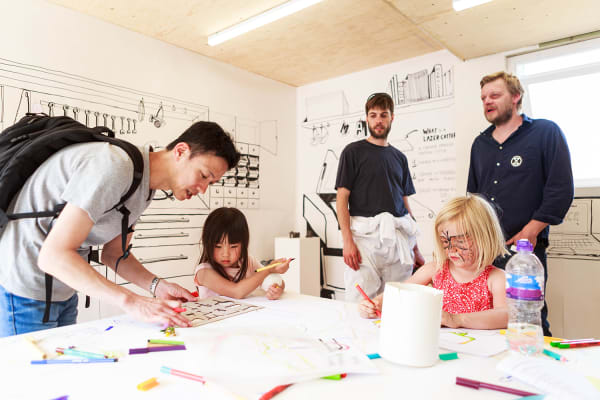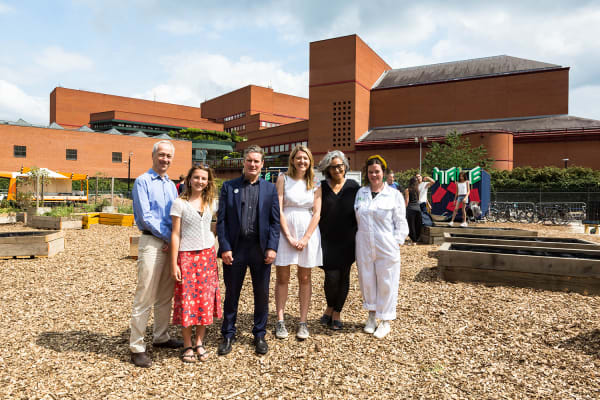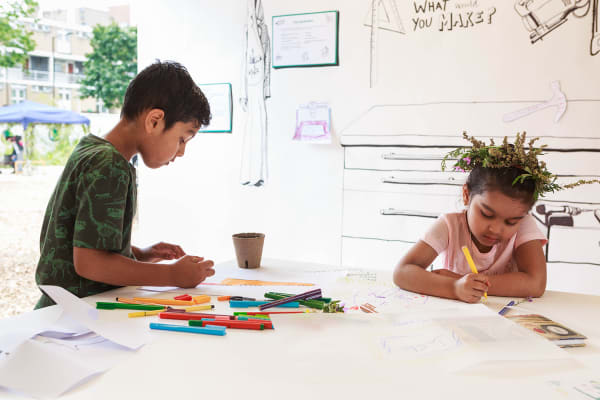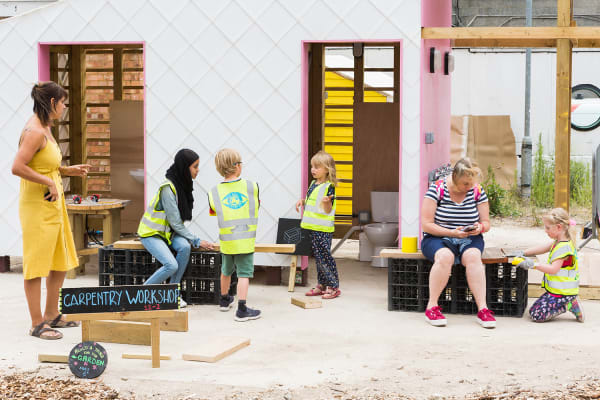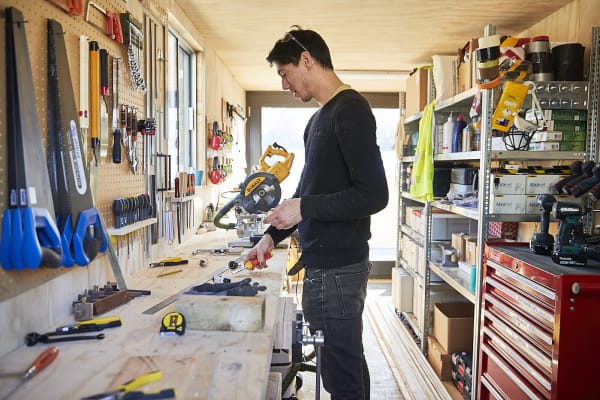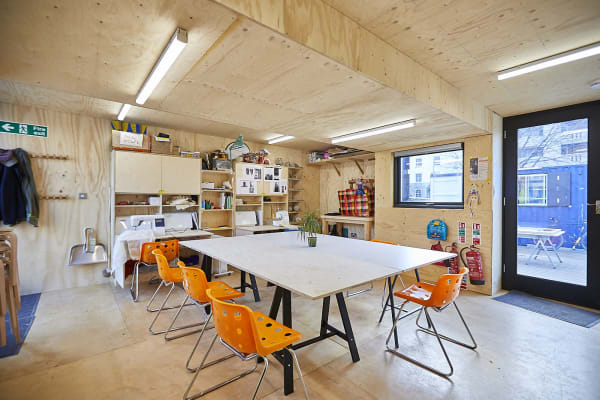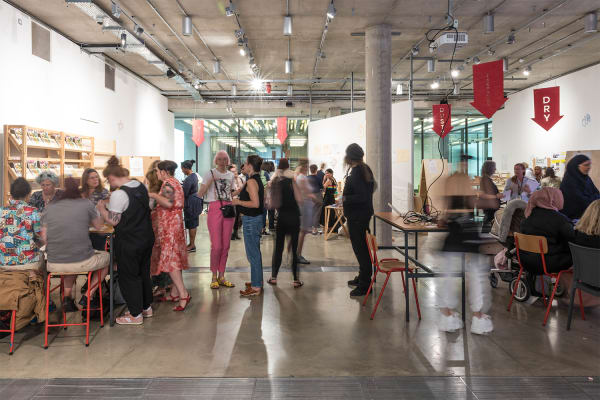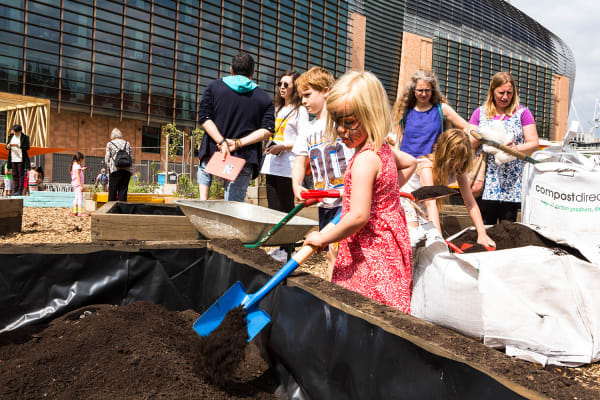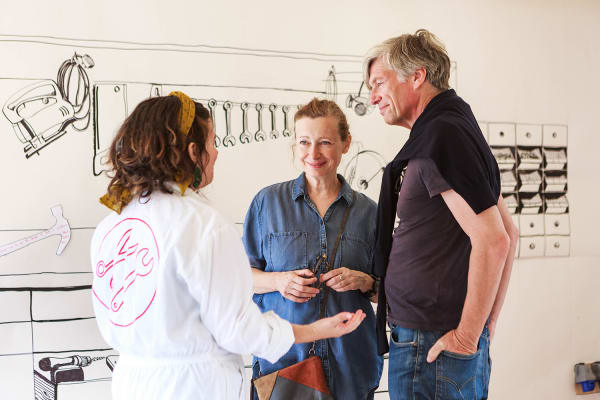T-Factor: Unleashing future-facing urban hubs through culture and creativity-led strategies of transformative time
Project duration: 1 June 2020 - 31 May 2024
Funded by: Horizon 2020 SC5-20-2019 - Transforming historic urban areas and/or cultural landscapes into hubs of entrepreneurship and social and cultural integration
Project summary
T-Factor challenges what is called the ‘waiting time’ in urban regeneration - i.e. the time in-between the development of the masterplan and the infrastructure being built - to demonstrate how culture, and creative collaboration between academia, government, community and business can unleash inclusive and vibrant urban hubs of (re)generation, social innovation and enterprise.
The project targets early stage regenerations in a diversity of historic urban areas including Bilbao, Amsterdam, Kaunas, Milan, Lisbon and London. Specifically, UAL is contributing to the London pilot by applying expertise in co-design, creative public engagement, and place-making in London's Euston regeneration area. T-Factor explores the potential for collaboration and creativity to use meanwhile spaces – areas of the city that are temporarily vacant whilst awaiting development - to support local people and publics to co-create temporary interventions that are meaningful and valuable to local communities and that can inform future provision – prototyping permanence.
T-Factor involves 25 partners from 11 European Countries and China. It is a partnership between public bodies, universities, enterprises and grassroots organisations, which each bring different values, working styles, core competencies and know-how, as well as a rich diversity in cultural backgrounds to the project.
All T-Factor’s partners are united by the common intent to reframe urban regeneration as a ground for negotiating (and aligning) public and private interests, towards sustainable urban development.

Project team
- UAL Principal Investigator: Adam Thorpe, a.thorpe@csm.arts.ac.uk
- UAL Co Investigator: Mick Finch, m.finch@csm.arts.ac.uk
- Rhianon Morgan Hatch, Research Fellow
- Eli Hatleskog, Research Fellow
- Diana Ibanez Lopez, Course Leader MA Cities
- Marcus Willcocks, Research Fellow
- Adriana Cobo Corey, Senior Lecturer in Ethical Practice
Project aims
T-Factor's overall approach will work internationally, as a community of practice, delivering an innovative city-mentoring model which will create multiple collaborations between the pilot cities, connecting and advancing cultural and creative hubs, universities, enterprises and social organizations partnering the project.
It will shape an international movement of capacity-building and knowledge co-creation for ‘transformative meanwhile’ in urban regeneration leveraging heritage, culture and creativity.
Throughout the developments in Euston, culture and creativity will facilitate engagement and collaboration with local and diverse actors, to help enrich and steer the masterplan towards heritage and culture-relevant innovation and social and cultural integration.
A ‘learning by making’ process will contribute to inform the development of masterplans across the six European pilot site , consolidating, adjusting and providing new directions of urban development rooted in shared goals of sustainable city-making – involving people from a range of professional backgrounds across the world.
This work feeds into UAL’s wider goal of putting the ‘arts’ into STEM: Science, Technology, Engineering and Maths, to make STEAM – highlighting the value of participatory art and design practices to public and social innovation.
Approach
T-Factor applies and develops a participatory city-making methodology based on a collective, collaborative and creative action of prototyping futures in the meanwhile. This process is supported by a ‘transformation agency’ and thematic Transformation Labs (mini think tanks) addressing the following topics:
- Arts, Culture & Creativity
- Industry 4.0 and STEAM Agenda
- Citizens-led Smartness
- Urban Design for Sociality and Well-being
- Circular and Collaborative Economy
- Social Innovation
- Social Inclusion, Megacities and Climate Change.
The T-Labs will support experiments that combine Lab themes with heritage, culture and creativity; focussing on how prototypes can maximise good growth, wellbeing and ecological regeneration.
Characterized by a combination of design, arts and creativity, community-building and robust monitoring and evaluation expertise, the transformation agency will accompany the Local Coalitions throughout the co-design, implementation, governance, monitoring and evaluation of the Euston project.
Partners
- ANCI Toscana (Lead), Italy
- LAMA Development and Cooperation Agency, Italy
- PlusValue, UK
- University of Arts London, UK
- Politecnico di Milano, Italy
- Asociación Cultural Open Your Kolektiboa – Espacio Open, Spain
- LAND Italia, Italy
- Fundacion Tecnalia Research & Innovation, Spain
- Aalborg Universitet, Denmark
- Marta Arniani, France
- Friche La Belle de Mai, France
- Stichting Waag Society, Netherlands
- Kauno Technologijos Universitetas, Lithuania
- Universidade Nova de Lisboa, Portugal
- Fundació per a la Universitat Oberta de Catalunya, Spain
- Entidad Publica Empresarial Local Bilbao Ekintza, Spain
- Kauno Miesto Savivaldybes Administracija, Lithuania
- Technische Universitat Dortmund, Germany
- Stadt Dortmund, Germany
- iPropeller, Belgium
- Lodz-Miasto Na Prawach Powiatu, Poland
- London Borough of Camden, UK
- Kaunas 2022, Lithuania
- Università degli Studi di Milano, Italy
- Tongji University – College of Design and Innovation, China
Stories
Related links
- Find out more on T-Factor website

The information and views set out in this web-site are those of the authors and do not necessarily reflect the official opinion of the European Union. Neither the European Union institutions and bodies nor any person acting on their behalf may be held responsible for the use which may be made of the information contained therein.
